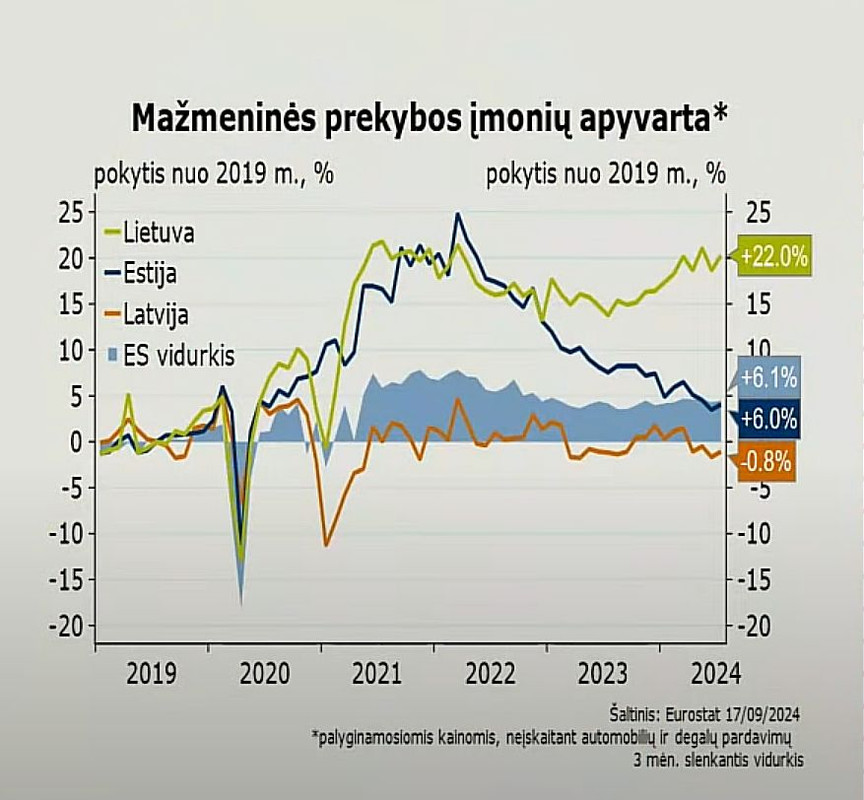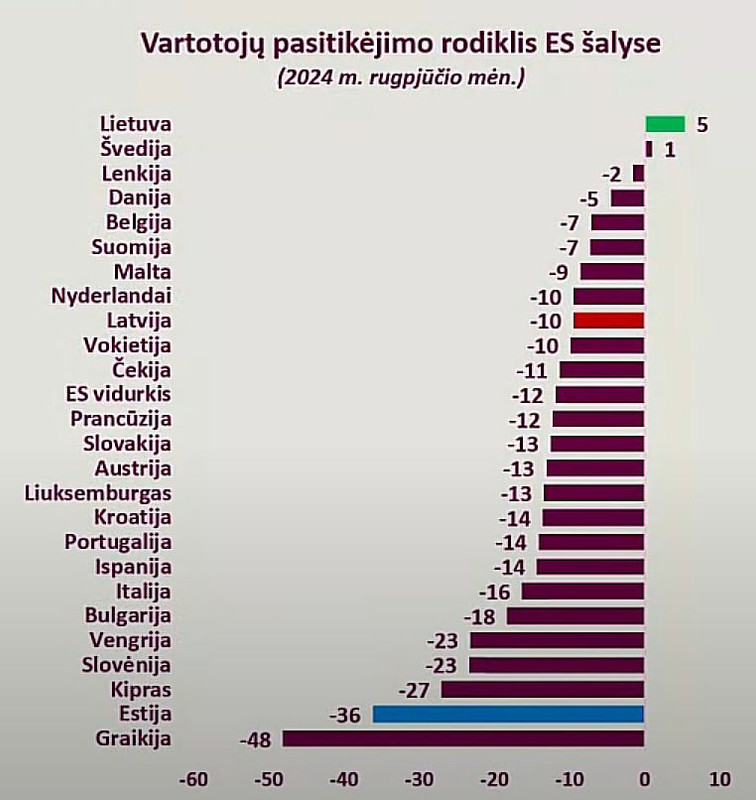"there is nothing worse than being overtaken by Lithuania"
These are the words of the Estonian business media portal Aripaev.
The resilience of Lithuanian economy to various challenges in recent years is simply amazing. The economy relatively well overcame COVID issues. Surprisingly the country is coping with the war related issues among others.
There are many reasons for such resilience. The very important issue is that the country was able to develop diversified economy in the past 25 years. There is a good mixture of industry, agriculture, services and (as you will see) high-tech. We weren't able to see this diversification earlier but it helped us a lot in recent years.
One of the reasons is the rapid development of new types of energetics. More than a decade ago the country was forced to spend 4-5 billion euros on imports of energy resources annually. This was and partially still is the “stone on our legs”. But the problem is not so acute now. Among the reasons: this year about 42-45 percent of electricity the country will get from renewable resources. Next winter about 88-90 percent of the heat in the central heating system country will be from renewable resources and this likely will be one of the two best results in the world! (the use of natural gas and oil in heating systems was reduced sixfold during the last 15-17 years).
Share of electricity generated from renewable sources as a share in total electricity consumption:

We got help from dictators in neighbouring countries too. Detail: this year Lithuania surpassed Belarus comparing the added value created in IT sector. In absolute terms. (You need to keep in mind that Belarus is 3 times bigger country). And this was achieved with the participation of IT specialists from Belarus who were pushed out from their country.

Citation from Estonian media: Gediminas Šimkus, Chairman of the Board of the Bank of Lithuania (BoL), noted a new trend in last week's Periodic Review of the Economy: the country's economy is no longer driven by the industrial sector and its exports, but rather by the services sector, or, to be more precise, by the information technology and communications sector.
Again view from Estonia: "They have focused on welcoming entrepreneurs. They welcomed both Russians and Belarusians who were seeking to free themselves from the oppression of war. And they have gathered some interesting start-up entrepreneurs", Realo told Radio Aripaev. According to her, these refugees immediately started to develop their businesses and pay taxes, a move that would be controversial in Estonia.
But the industry continued to grow too: the next chart shows the changes in the total industrial output in three Baltic states and Germany in 2019-2023:

Again view from Estonia: She also pointed out that Estonian businesses are not able to rely on exports mainly to three countries - Finland, Sweden and Germany.
"This is probably the main difference between us and Lithuanians. The competition between countries has taken on a whole new dimension. For Estonians, there is nothing scarier than the fact that Lithuania has overtaken us." In her opinion, the success of the Lithuanians is also due to the fact that Lithuanian entrepreneurs have a much broader portfolio of countries to export to. In addition, Lithuanian companies, unlike Estonians, are slightly less involved in subcontracting.
"Lithuanians are very ambitious, that's their culture. They work faster, they don't think things through as well as Estonians are used to. Often they make a mistake at the beginning, but later they correct it. In a crisis, this behaviour is justified - we move on rather than discussing what went wrong and why nothing can be done"
These economic factors led to one more economic indicator: country started to have surplus in external trade which leads to new and new incoming streams of money:

Dynamic of revenues of Lithuanian trade companies:

Annual inflation during 7 months of this year:

All above mentioned facts causes interesting phenomena: together with Swedes Lithuanians are the biggest optimists about the economy in Europe:

And yes: we will likely achieve 87-89 percent of the GDP per capita of Western Europe this year. Never were we so close to that region in history. And one more thing that can happen this year: we can catch Italy on a GDP per capita this year. Never, never before in history, this country was on par with Italy in economic development.